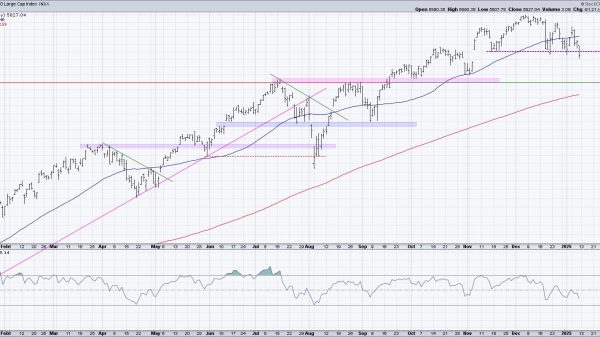BEIJING – A shift in Chinese retailers’ strategy toward lower-priced goods and services to win cost-conscious consumers risks embedding the country’s recent deflationary trends more permanently into the world’s second-largest economy.
Price cuts, the proliferation of bargain stores and companies offering cheaper, scaled-down versions of their products may create a vicious cycle of lower profit margins that curtail wage and job growth and further depress consumer appetite. This stands to create more headwinds for China’s stuttering post-COVID recovery.
The fierce competition to draw the attention of thrifty Chinese consumers is reshaping the country’s retail landscape and the deflation concerns are drawing further comparisons with Japan’s “lost decades” of stagnation.
Falling income growth is normalizing lower consumption in China, with some industries experiencing declining revenue, as “companies are lowering prices to maintain their market share and avoid being squeezed out,” said Wang Dan, a Shanghai-based economist at Hang Seng Bank.
“It is definitely a price decrease or low inflation environment now. Though it is hard to forecast how long the situation will last, but for sure it is bad for the economy,” she said.
Numerous examples of Chinese retailers offering lower-priced alternatives have appeared in response to consumer’s cost-cutting.
Haidilao, China’s largest hotpot restaurant chain known for premium, attentive service, in late September opened two outlets of a lower-priced brand, Hailao Huoguo, that offers beef dishes for as low as 28 yuan ($3.92), down from 70 yuan at the flagship chain. Huoguo’s food is also served cafeteria-style, reducing staffing costs.
Spirits maker Moutai, whose trademark 500ml baijiu bottles sell at 1,499 yuan ($209.89), this year unveiled latte and chocolate products infused with the liquor that sell for as little as 35 yuan.
Walmart’s membership chain Sam’s Club and Alibaba’s Freshippo have been locked in a price war for the past five months with both sides cutting prices on popular items such as durian puff pastries by up to 34% at Sam’s.
The pursuit of “value of money” among consumers “is reversing years of trading up across almost every category,” said Mark Tanner, founder of Shanghai-based marketing agency China Skinny.
Discounting and the roll-out of cheaper products had led to a fall in the average selling price for several product categories, including supplements, dairy, skin care and cosmetics, he added.
Policymakers have said they expect inflation to pick up, but data earlier this month showed consumer prices falling at their fastest pace in three years and factory gate deflation deepening.
While the economy, spurred by state-directed credit and investment, is expected to expand 5% or so this year, consumers are not feeling that growth, with youth unemployment running high and some office workers earning lower wages.
Andy Yang, a student in Beijing, recently went to Hailao Huoguo with friends and planned to switch from Haidilao in the long run. “I’m graduating next year but I still don’t have any good job offers. For me, the cheaper the better,” he said.
Reached for comment, Haidilao said the brand was “still an experiment”.
BARGAIN STORE EXPANSION
The climate has also given rise to a new breed of discount stores, a relatively new phenomenon for China, whose emergence are also spurring larger rivals to announce big price cuts.
Lingshi Henmang is a six-year-old snack brand with the slogan “The People’s Snack”. Its products are cheaper than supermarkets and it plans to expand to 10,000 stores in 2025 from 4,000 currently, according to the Changsha-based company.
In a statement released by its public relations representative, Lingshi Henmang said the expansion was a result of strong demand.
“The market has undergone significant changes in the past three years due to the epidemic, and consumers are becoming more rational in their purchasing decisions,” the statement said.
Bestore, China’s biggest snack brand, in November fought back by cutting prices on average by 22% on 300 products, with the largest at 45%, in its biggest reductions ever.
Hotmaxx, which specializes in selling soon-to-expire products at cheaper prices, has also set a target of expanding to 5,000 outlets in the next three years, from 250 currently, according to its website. — Reuters























